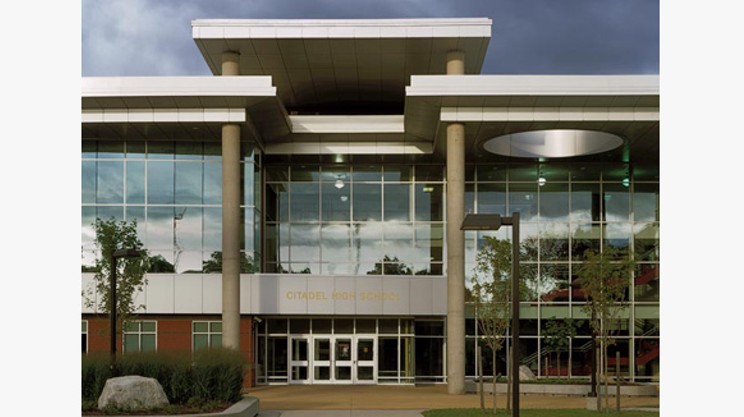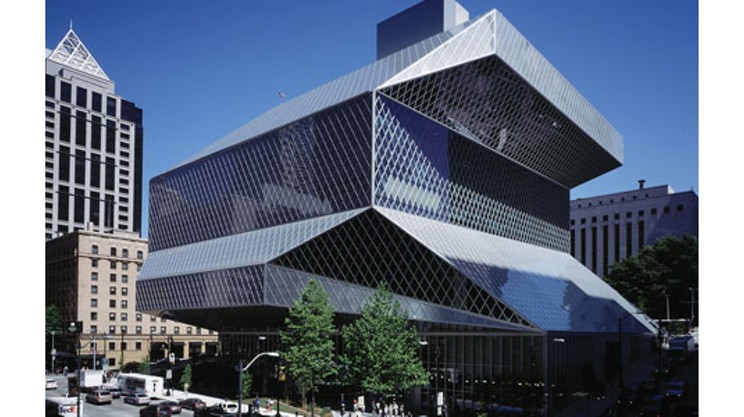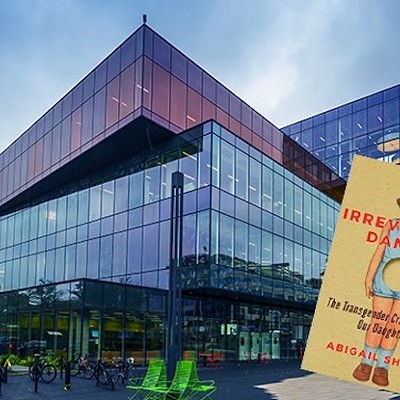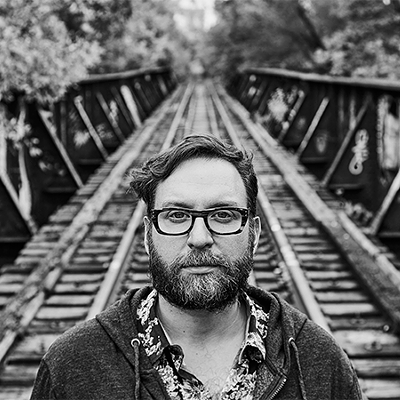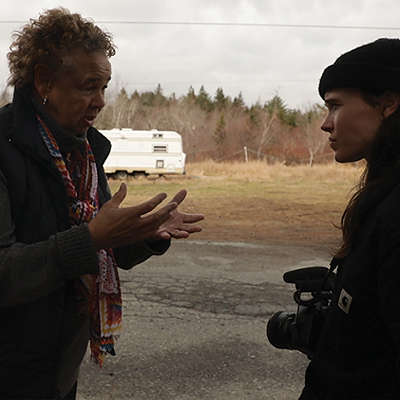This week's Coast takes a detailed look at the intriguing possibilities for Halifax's central library---everything from the potential for an inspiring new building with beautifully designed public spaces to the opportunities for a vigorous balance between old and new media. Our reporting celebrates what we see as a victory in the clash between town and city values. It's a conflict that has defined Halifax since the 1980s when, among other things, politicians and citizens first started debating the need for a new downtown library. Back then, the quaint and cramped, but much-loved Spring Garden Memorial Library was the perfect embodiment of town values. The library, which opened in 1951, was expanded in 1974 but by the mid-'80s, it was plain that the city had long since outgrown it. Yet the struggle for a new library would take 25 years.
Now that all three levels of government have finally allocated $55 million for a central library at Spring Garden and Queen, we seem all but certain to get it. True, media reports suggested last week that council might consider delaying construction because of a $30-million shortfall in next year's municipal budget. But the library project is too far along to be derailed by the penny pinching, town values crowd. Besides, the federal contribution of more than $18 million is there on a "use it or lose it" basis. So, it's now or never for what could become the centrepiece of public life in an old seaside city where public institutions are already at the heart of things---schools, colleges and universities, public gardens and parks, hospitals and clinics and, lest we forget, Her Majesty's Royal Canadian Navy.
Our new library's potential to become a public focal point arises partly from its central location and partly from the fundamental nature of libraries. As the American scholar Richard Rubin points out, public libraries are open to all, supported by taxes, governed by a board and perhaps most important, they're voluntary---people aren't forced to use the library in the way they're forced to attend school. Aside from minor fees for such things as photocopying and interlibrary loans, public libraries provide a wide range of free services. They also defend core democratic values including everyone's right to use library resources that reflect the widest possible range of opinions and ideas; everyone's right to privacy and everyone's right to voice opinions about library resources and services. Staff at the Spring Garden library worked hard to make it a welcoming place serving many diverse communities. The new, bigger library has the potential to build on these efforts encouraging even more diversity.
As I see it, the main pitfall we face is that after we've finally built our 109,000-square- foot central library and supplied it with hundreds of thousands of books, with computers, internet access, CDs and DVDs, we may be tempted to declare, "OK, we've done everything." But we also need adequate staff, not just to help citizens use what's in the library, but to conduct community outreach getting more people into it for discussion and debate. I see our new central library as a space where written and oral traditions continue the struggle to preserve our culture, history and collective memory.
Harold Innis, one of Canada's greatest thinkers, warned that powerful commercial media bent on selling us things and obsessed by what's happening now threaten to obliterate collective memory. Innis accused mass media of engaging in what he called "a continuous, systematic, ruthless destruction of elements of permanence essential to cultural activity." He advocated a revival of the oral tradition, face-to-face communication, as a way of preserving culture, memory and democracy. Our new central library could help fulfill Innis's dream. It could also help us rediscover what chief Dan George meant when he spoke of the power of the oral tradition: "My people's memory reaches into the beginning of all things."



